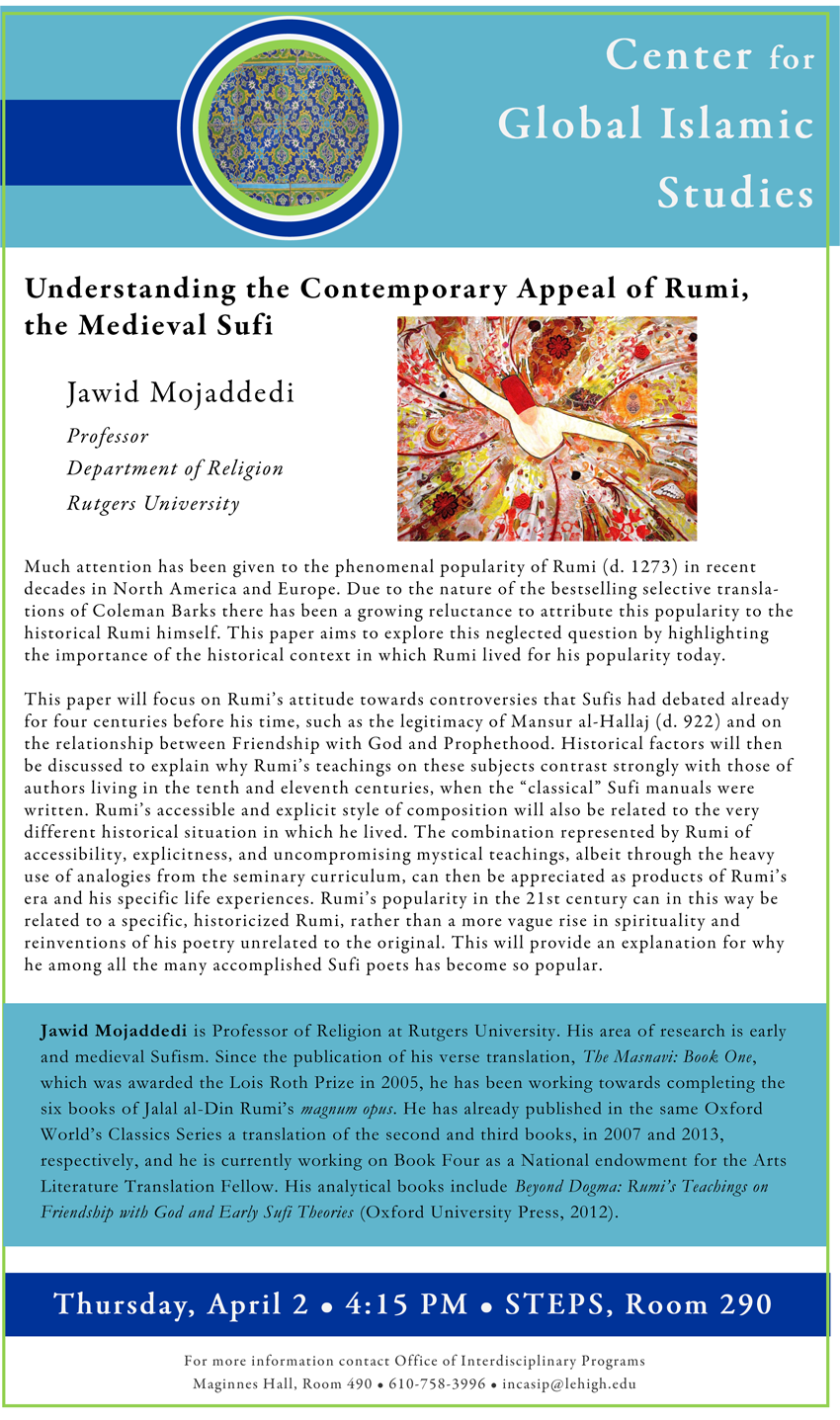Speaker:
Date:
Much attention has been given to the phenomenal popularity of Rumi (d. 1273) in recent decades in North America and Europe. Due to the nature of the bestselling selective translations of Coleman Barks there has been a growing reluctance to attribute this popularity to the historical Rumi himself. This paper aims to explore this neglected question by highlighting the importance of the historical context in which Rumi lived for his popularity today.
This paper will focus on Rumi’s attitude towards controversies that Sufis had debated already for four centuries before his time, such as the legitimacy of Mansur al-Hallaj (d. 922) and on the relationship between Friendship with God and Prophethood. Historical factors will then be discussed to explain why Rumi’s teachings on these subjects contrast strongly with those of authors living in the tenth and eleventh centuries, when the “classical” Sufi manuals were written. Rumi’s accessible and explicit style of composition will also be related to the very different historical situation in which he lived. The combination represented by Rumi of accessibility, explicitness, and uncompromising mystical teachings, albeit through the heavy use of analogies from the seminary curriculum, can then be appreciated as products of Rumi’s era and his specific life experiences. Rumi’s popularity in the 21st century can in this way be related to a specific, historicized Rumi, rather than a more vague rise in spirituality and reinventions of his poetry unrelated to the original. This will provide an explanation for why he among all the many accomplished Sufi poets has become so popular.
Jawid Mojaddedi is Professor of Religion at Rutgers University. His area of research is early and medieval Sufism. Since the publication of his verse translation, The Masnavi: Book One, which was awarded the Lois Roth Prize in 2005, he has been working towards completing the six books of Jalal al-Din Rumi’s magnum opus. He has already published in the same Oxford World’s Classics Series a translation of the second and third books, in 2007 and 2013, respectively, and he is currently working on Book Four as a National endowment for the Arts Literature Translation Fellow. His analytical books include Beyond Dogma:Rumi’s Teachings on Friendship with God and Early Sufi Theories (Oxford University Press, 2012).

